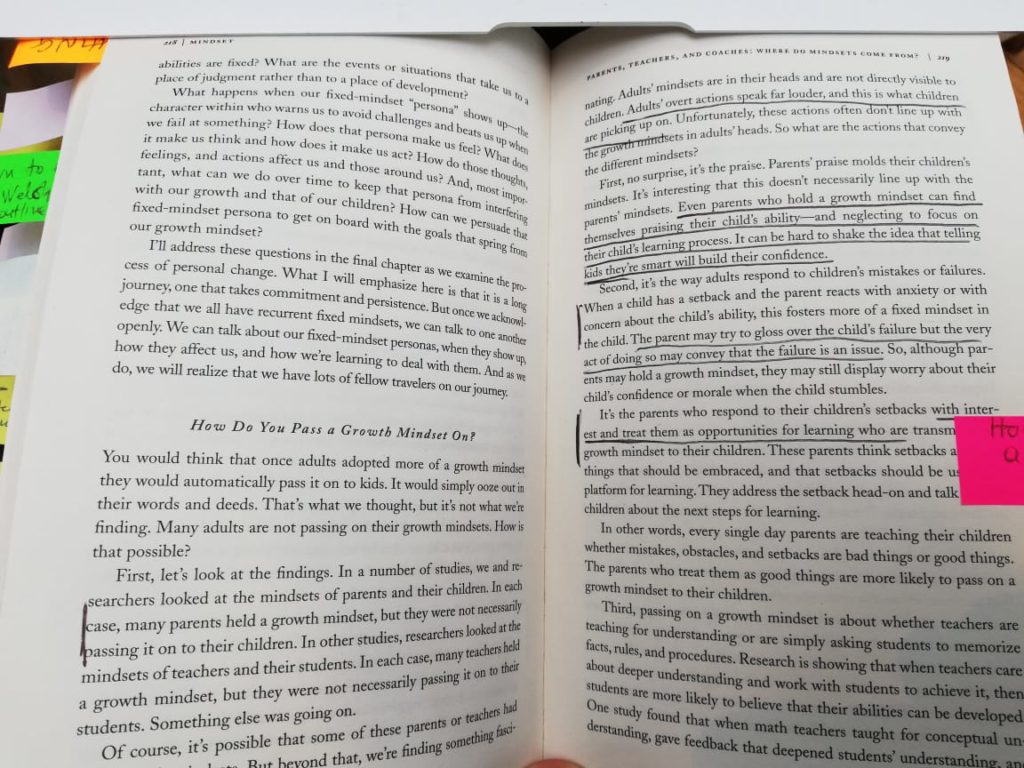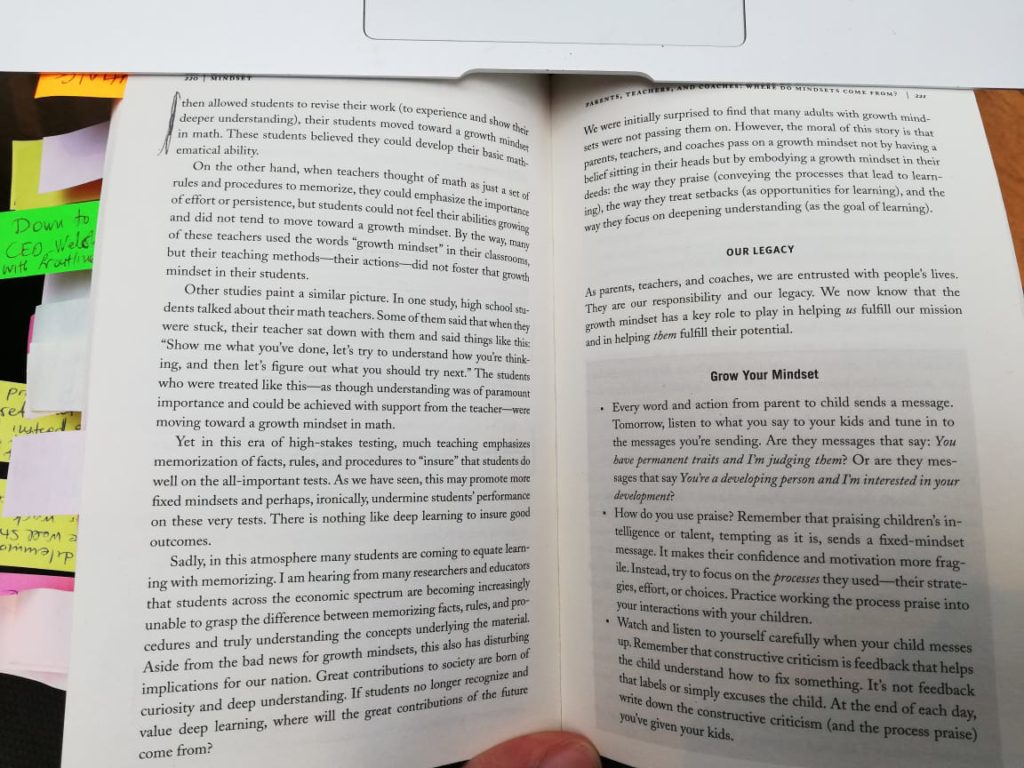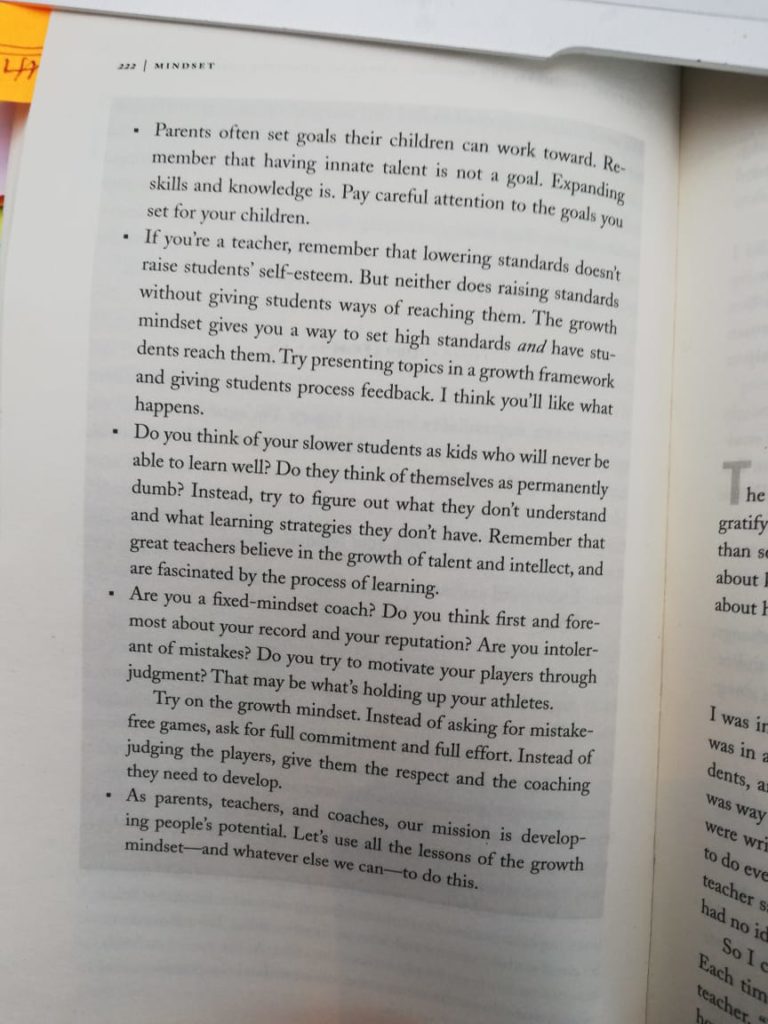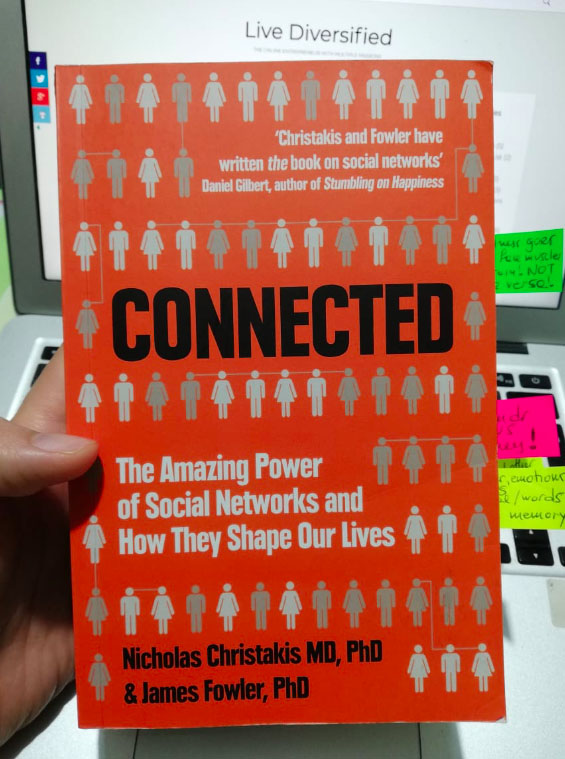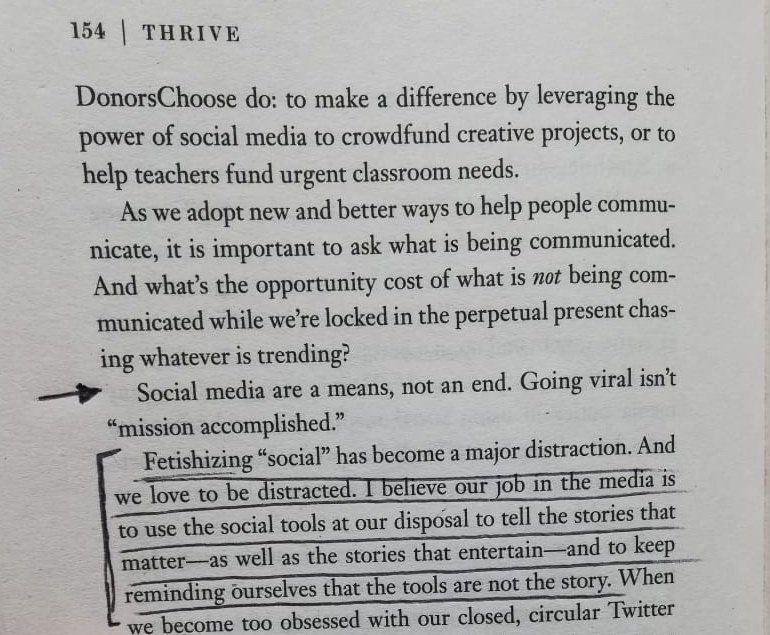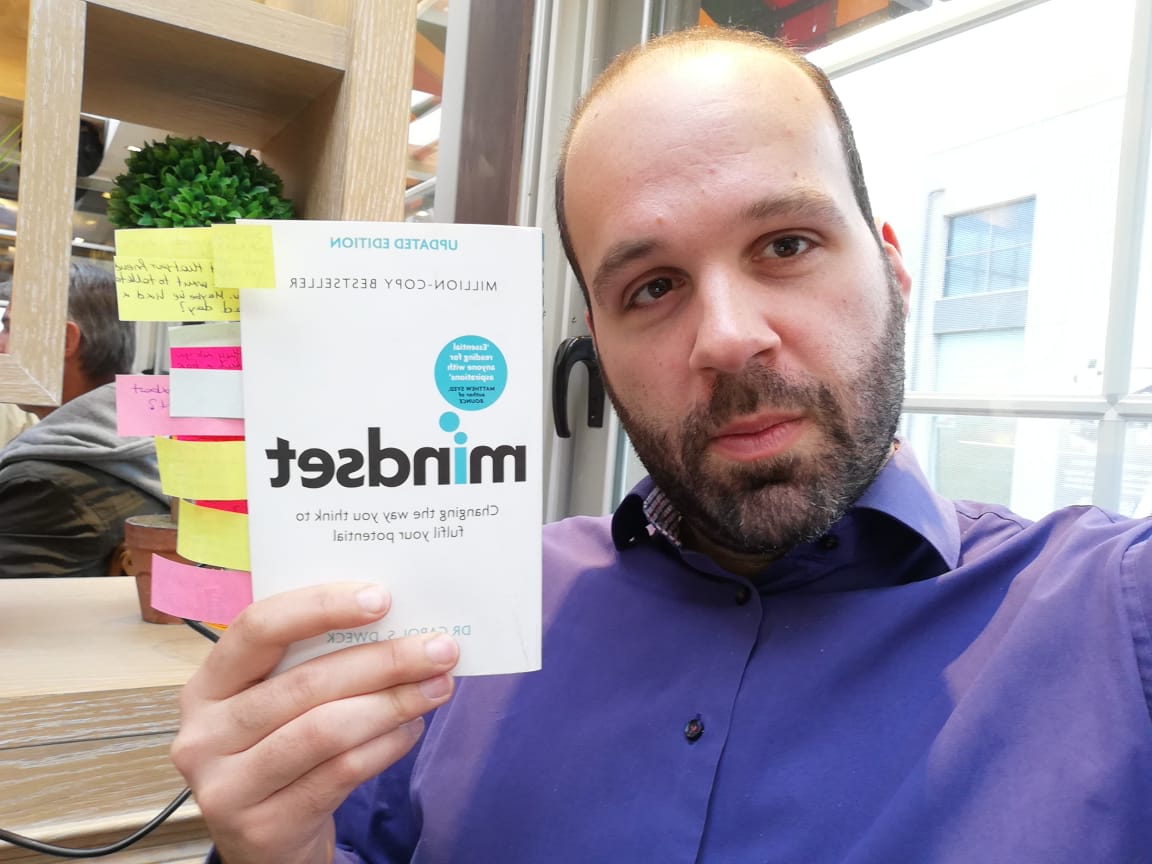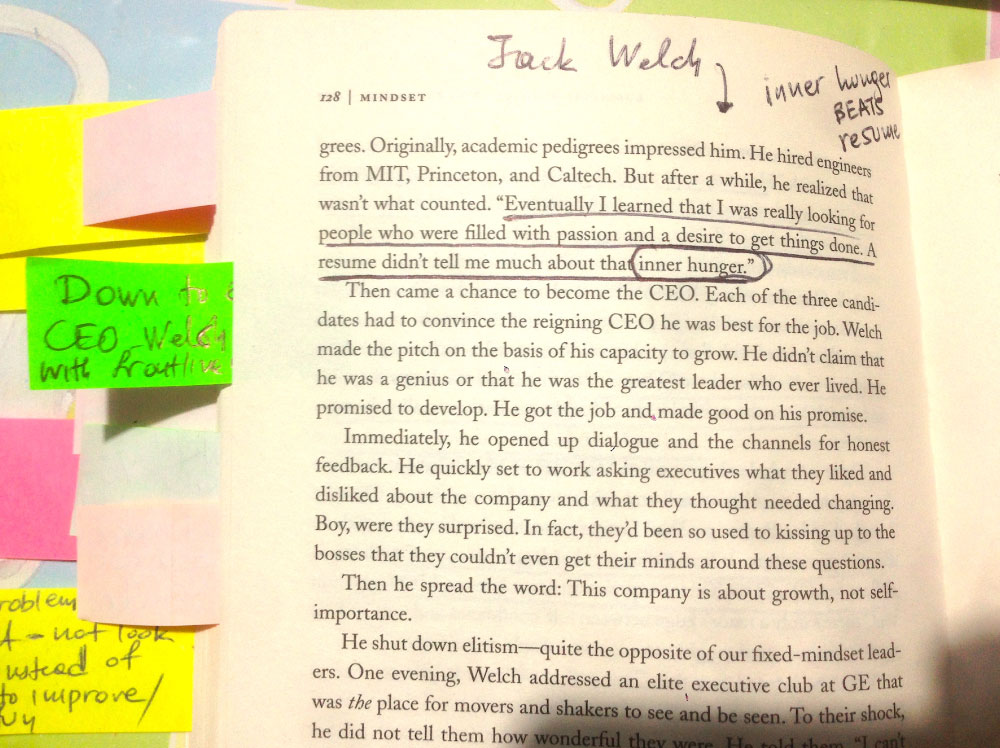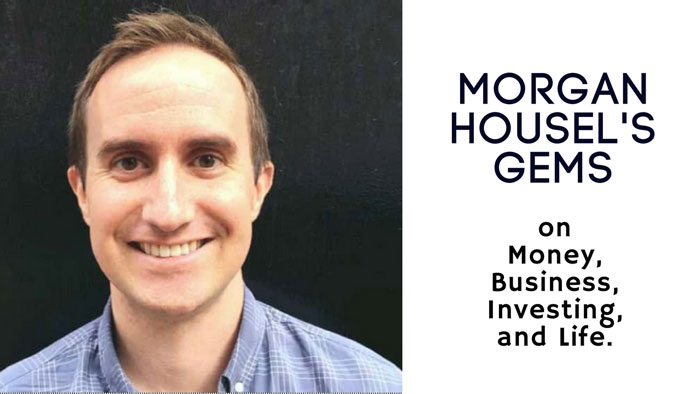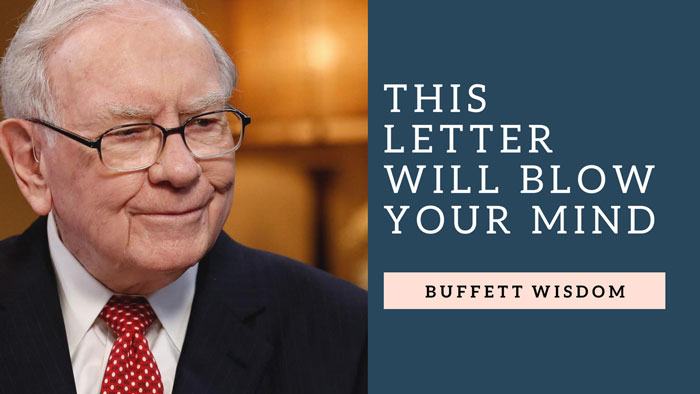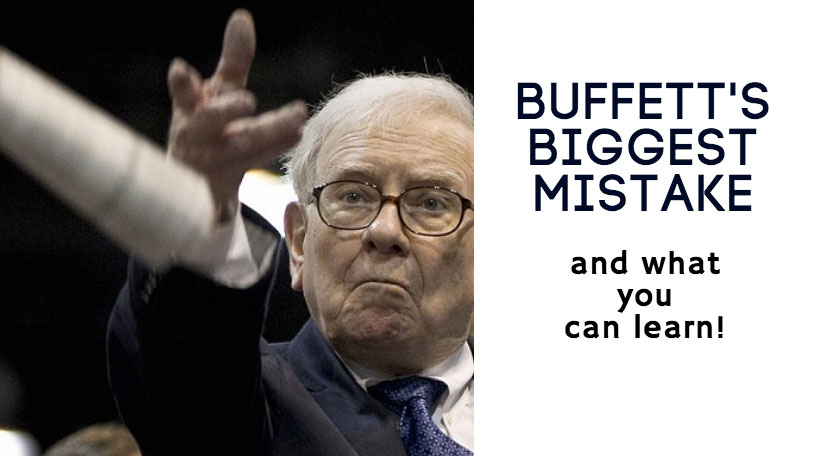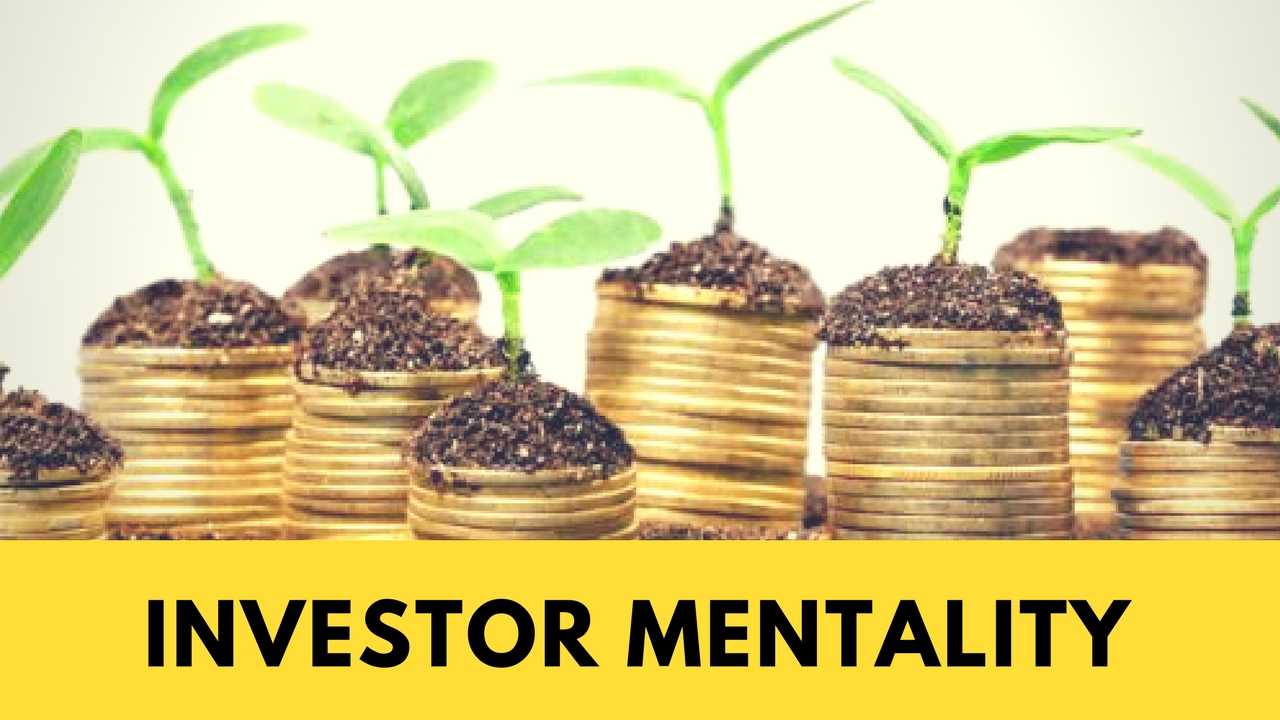A few notes here from Carol Dweck’s book Mindset.
It’s surprising but a parent/teacher who holds a growth-mindset doesn’t necessarily pass it on to their children/students.
Praise (when things go well). If you praise a child’s ability without focusing on the learning process, you send a signal that it’s all about the inherited ability and not the growth. Even parents with a growth mindset do that.
Reaction to setbacks (when things don’t go well). If a parent reacts with anxiety or concern to their children’s failures, they promote a fixed mindset. Even when they gloss over the failure, ie. they don’t show interest into what was the issue and how it can be improved, they show that failure is an issue and there’s nothing you can do about it. Then the children will do anything just not to fail (they can even lie) rather than focus on how to grow.
This, of course, applies to adults too! An adult can also lie in order to hide deficiencies and not look dump. For example, an adult may opt to remain silent in a meeting instead of asking a question about something they don’t know/understand. Dweck mentions Enron as an example of a fixed-mindset corporate culture. An Enron employee was considered a talent, a super-star with great abilities.
An amazing conclusion: You don’t have to explicitly say to someone “You should have a growth mindset. Look at this as an opportunity to learn!” You can foster the growth mindset on the subconscious level. How?
Show genuine interest in the setback: “Tell me more about it. What do you think happened here? How can we fix this? Do you think if we did _____ would fix the problem?”
And then…
Treat setbacks as opportunities for learning: That was a challenge, we learned something new today, that was interesting, that was fun, etc.
The approach above sends a signal that abilities are not fixed but they can be developed.
Don’t praise intelligence or talent. By doing so you make their confidence more fragile when they face a setback next time. Well, they’ll think that there is as much talent as there is, you can’t do anything about it. However, when you focus on the processes, the strategy, effort, choices, you convey a message that you have control over all this stuff if you want to get better.
A coach who says that this student has a fixed mindset and is hard to work with says that “I’m a fixed-mindset coach who doesn’t believe in growth but fixed abilities”.
Something that amazes me is that actions speak louder than words. You prove with your actions and your enquiry that someone can be developed. That’s the whole point.
